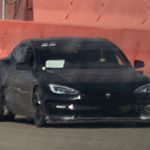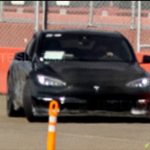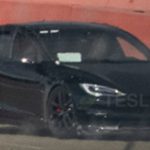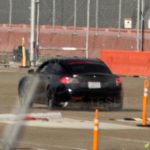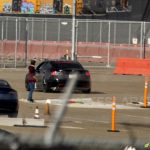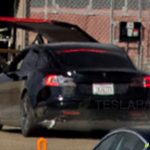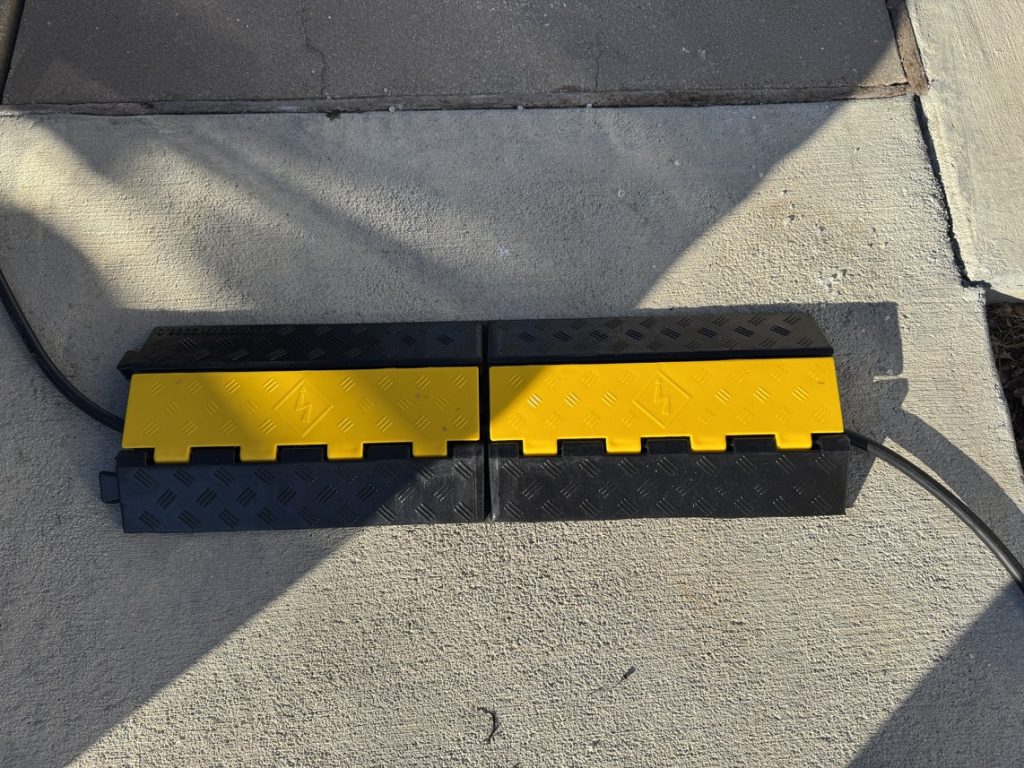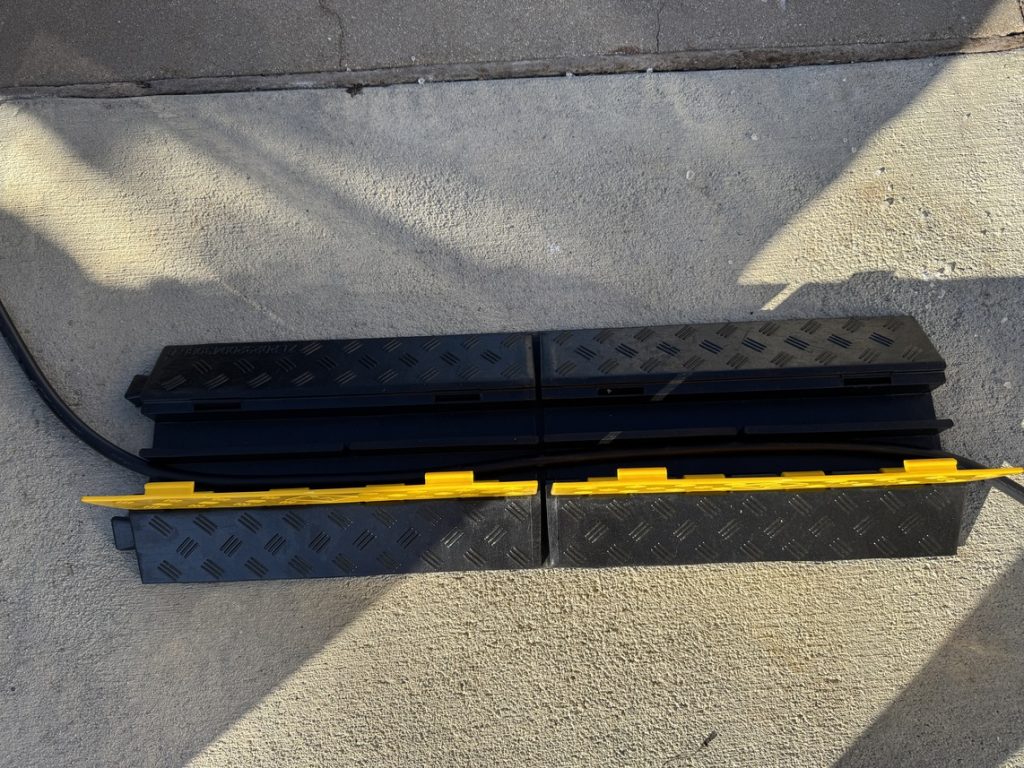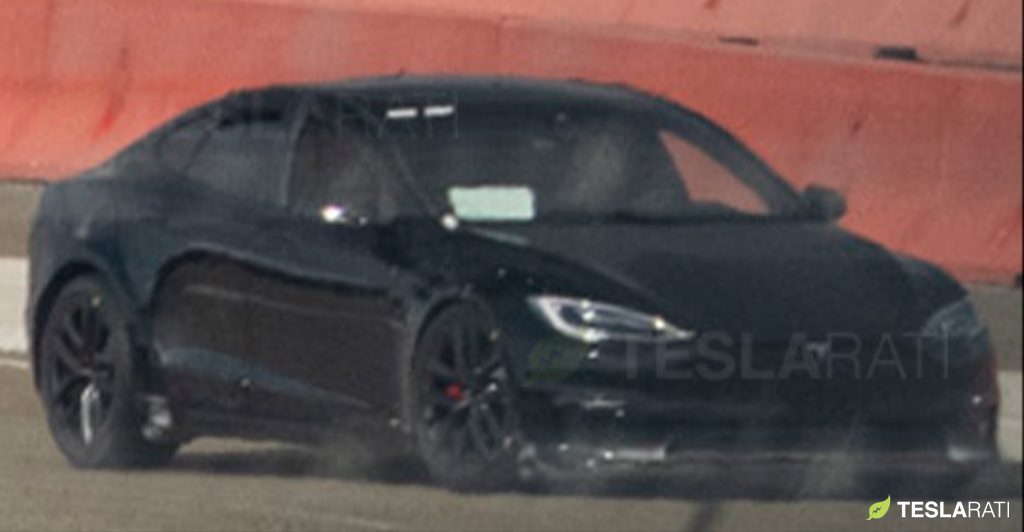
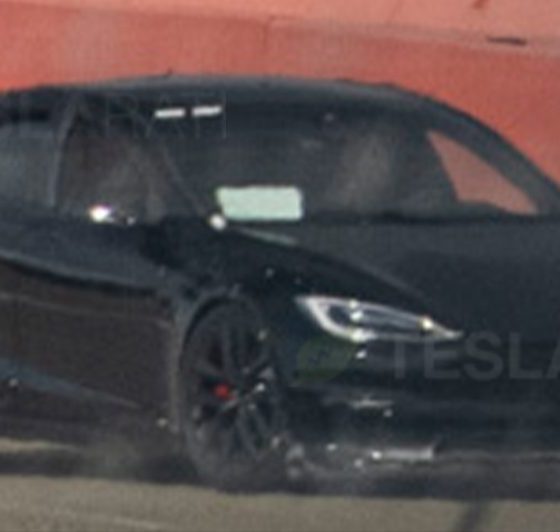
News
Tesla Model S “Refresh” spied track testing
New photos from the Tesla Fremont Factory obtained by Teslarati show the new Refreshed Tesla Model S and its new features, confirming the long-time speculation of whether the company’s flagship sedan would be updated nine years after its initial release. After the Plaid Model S was announced in 2019, slight cosmetic modifications were added to the car to increase aerodynamic performance in a track setting. Some of these new features included a wider body, a rear diffuser, and a spoiler. Tesla has made several changes to the Refreshed Model S, as seen in the photos below. The vehicle was spotted at both the Fremont Test Track and on public roads when the photographs were taken.
For those who are unfamiliar, Tesla operates its own test track behind the Fremont factory for its vehicles. In 2013, three years after Tesla’s purchase of the Fremont factory from GM, the electric automaker bought the 35-acre property that included the test track from the Union Pacific Railroad. It is located adjacent to the Fremont factory, so Tesla can take cars that need to be tested to the track within a few minutes. In the past, Tesla has tested vehicles like the Model Y and the 2020 Roadster at the track prior to their release, indicating that the new Model S that was spotted could be on its way to the company’s Design Studio shortly.
Initial rumors of the Model S refresh emerged in late 2020 after several updates to the Model 3 and Model Y vehicles. While the Model Y underwent several minor updates, like a new center console, new door paneling, and a heated steering wheel in China, the Model 3 was the subject of more noticeable cosmetic revisions. The mass-market sedan from Tesla was equipped with a full chrome delete kit that now comes standard, a new center console design, new headlights, double-paned glass, a powered trunk, and other interior revisions.
On the other hand, the Model S has only undergone one true cosmetic revision since its initial release nearly nine years ago: the removal of the nosecone. Since the vehicle has gone so many years without a real update or any major changes to its aesthetic qualities, Tesla may have decided it was time to “refresh” the car.
Now, photographs of the new Model S have been captured, showing a wider body, revised fog lights, new wheels, and several other cosmetic revisions.
A few of the more notable changes are a new front diffuser, a part that became standard with the newly-designed Plaid Model S. A diffuser displaces air underneath the vehicle’s body, increasing aerodynamic performance and making the flow of air more efficient during travel. Additionally, the front fascia has also been revised slightly. This is the second revision Tesla has made to this portion of the Model S since its release. The new design includes a larger central air intake vent for improved airflow and ventilation to the battery pack. This eliminates the possibility of overheating and improves battery lifetime and performance.
- The Model S in this photograph shows the revised front fascia, new fog light design, a wider body and new wheels. Photo: Teslarati
- A second photo shows a head-on view of the Model S spotted at Fremont. Photo: Teslarati
- Tesla has placed new wheels on the Model S in this photo, reminiscent of the Arachnid wheels that were included in the referral program. Photo: Teslarati
One of the more interesting and speculative details of the new Model S is that there is no touchscreen protruding from the top of the dash. The Model 3 and Model Y center dash screen can be seen from the outside of the vehicle when looking through the windshield. There is no evidence that Tesla is adopting the 3 and Y center touchscreen design for the Model S refresh. We are currently not aware of any modifications to the vertical touchscreen that has been standard on the Model S and Model X.
The fog lights located on the bottom of the front lip have also been modified, bringing a slightly new look to the lower lights. Additionally, new wheels appear to be on the Model S, and they look to be a revised version of the Arachnid wheels that Tesla included as a Referral Program reward back in 2016. Neither the 19″ Tempest Wheels nor the 21″ Sonic Carbon Twin Turbine Wheels that are available with the Plaid Model S matches the wheels that were equipped on the vehicle that was spotted at the Fremont Factory. This appears to confirm Tesla may also be releasing a new wheel design that will be included with the Refreshed Model S design.
It seems the refreshed Model S has adopted more features that are going to be included on the Plaid Model S, due to be released in late 2021. A wider fender design is paired with new, wider wheels. These modifications were first noticed on the Plaid Model S that was spotted running spirited laps at the Nürburgring in Germany in 2019.
Photo: Teslarati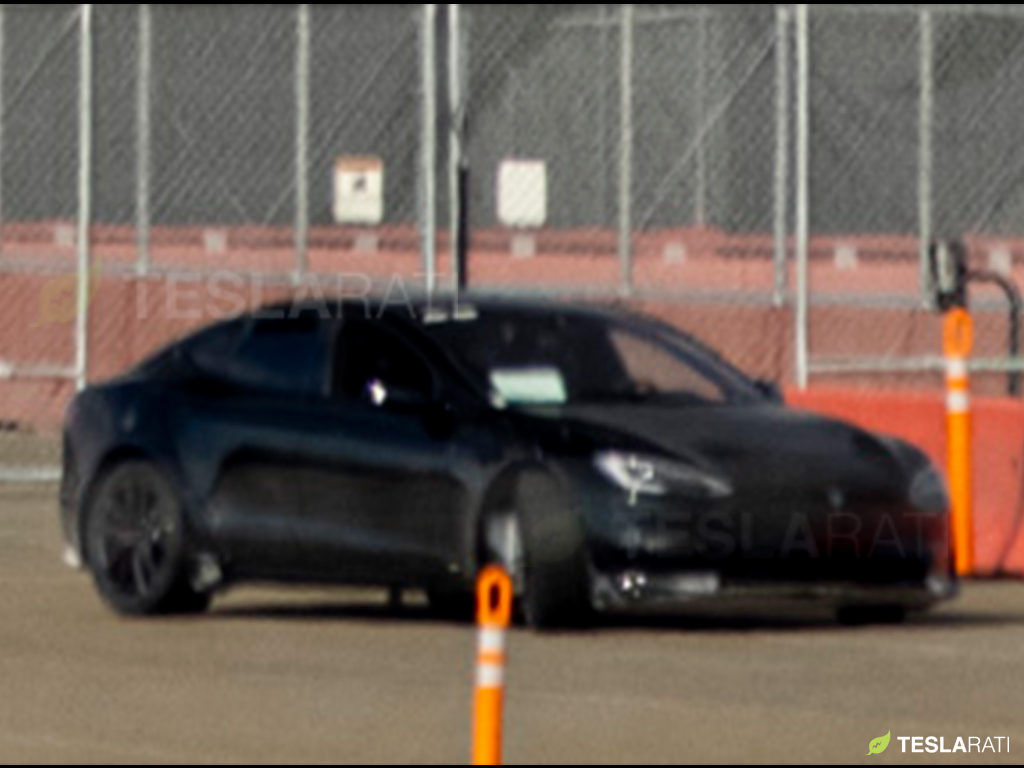
Another interesting note is the side repeater cameras have been adjusted onto the new fenders, but only slightly. It appears Tesla has moved it forward toward the wheel well. This could be to increase visibility when the cameras are activated.
The final noticeable external revision is a new rear bumper design that is more robust than the original Model S design. This could be indicative that the black Model S in the photos we shared could be the Plaid Model S, as it also has a wider rear bumper. However, it does not have a rear diffuser installed underneath, meaning it could just be a refreshed design.
- Photo: Teslarati
- Photo: Teslarati
- Photo: Teslarati
Tesla is holding its Q4 2020 Earnings Call on Wednesday and many enthusiasts believe the company will announce either a refresh to the Model S, or will indicate the Plaid Model S will be on its way soon. With the several external modifications that have been spotted thanks to the pictures above, we know that Tesla is working on a revised design for its flagship sedan. While no details are known about the interior as of yet, details will be shared as they are found.
The Kilowatts spotted some more photos of the unique Model S at Fremont, providing some additional perspective on what changes Tesla made to its flagship sedan.

News
I figured out how to charge my Tesla at my rented townhouse – Here’s how
I hope that this article is able to help the prospective EV buyer or the current Tesla owner who is living in a rental and does not have a straightforward solution to home charging. My situation will be presented in this article, and I will tell you why I went with the solution I went with, and alternatives, because there is more than one way to do this.
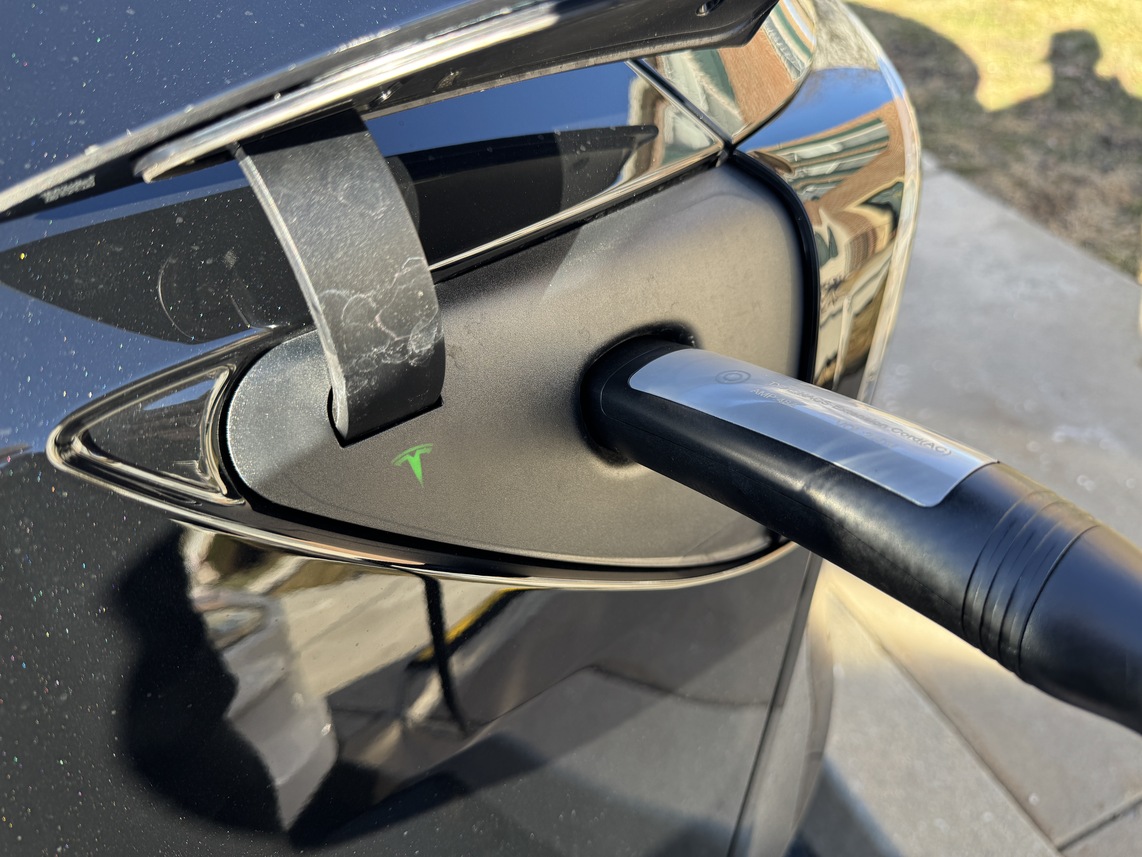
When I bought my Tesla Model Y Premium All-Wheel-Drive last year, I knew I would have to try to figure out a way not become totally reliant on Superchargers. After about six months of ownership, it came time to resolve that problem once and for good, and being a tenant in a rented townhouse community definitely added to my challenge.
Before I even bought my Tesla, I emailed my leasing office to see if the community had any plans to bring EV charging to the neighborhood. I had made myself available to them as I am familiar with a lot of the solutions out there and how much of an advantage this could be for the community, and attracting new tenants. After months of trying, I bought my Tesla in August anyway, and figured I’d be able to find an answer — whether positive or negative — and go from there.
I hope that this article is able to help the prospective EV buyer or the current Tesla owner who is living in a rental and does not have a straightforward solution to home charging. My situation will be presented in this article, and I will tell you why I went with the solution I went with, and alternatives, because there is more than one way to do this.
My Challenge with Home Charging
In a rental community, apartment complex, or even townhouse row, parking spots are a little complicated. I have assigned parking at my house, and unfortunately, my parking spot is not right in front of my front door. Instead, it is staggered, so my car is parked in front of my neighbor’s front door.
Initially, I had spoken to my neighbor whose spot is right in front of my front door and had gotten permission to park in their spot during the day while it is vacant. However, I was not going to be able to upgrade my outlet from a 110v-120v to the typical and suggested 220v-240v alternative.
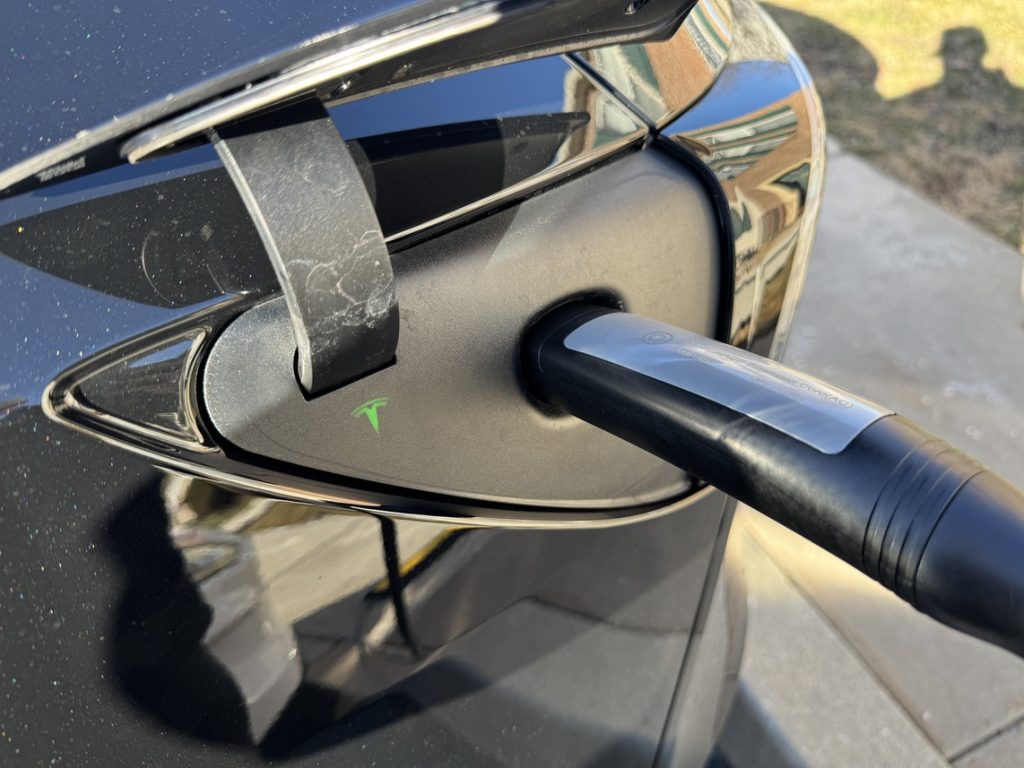
I knew that this would mean I would need to be in my permanent spot because charging sufficiently, especially in preparation for trips or errands, would require overnight charging.
The Tesla Mobile Connector is 20 feet long, which is sufficient for most applications. Mine, however, required about 30 feet, maybe even a little more, to charge.
My Options
I had a few options: Use the Mobile Connector and park in my neighbor’s spot and charge when I could, buy an 8 or 10-gauge extension cord that could handle moving power from the Mobile Connector to my car, or buy an NACS to NACS extension cord.
I didn’t really want to do the first option, considering I knew that spot would only be available when my neighbor was not there. It didn’t seem like a viable option, and I figured it would be better to figure out something from my personal, permanent parking spot anyway.
The 10-gauge extension cord option was what I first considered: it was less expensive than buying an NACS extension, it was more readily available, and it was the first thing my friends who are electricians recommended.
However, running this option would have put the Mobile Connector in the grass or on the ground, and I was not interested in doing that. Running the risk of having that $300 connector that came with the car in the grass and exposing it to dew, dogs, and various other things just did not seem like the best idea.
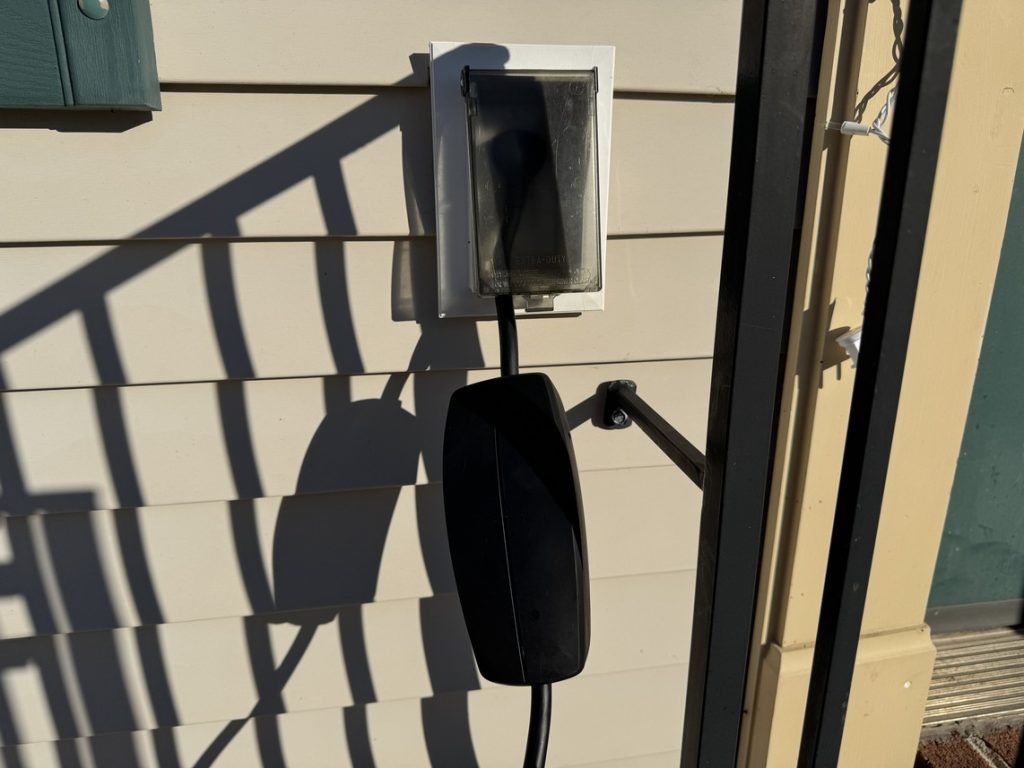
I looked around for some NACS to NACS connectors, and there are a lot of options. Given that this was something that was going to plug into a $50,000 car, I chose to spend the additional money on one that was not from Amazon, and I went with this one from A2Z, which was recommended by other owners, and their reputation seemed more than positive. I was leaning toward this option anyway because it would keep the Mobile Connector off the ground, and it gave me an additional 16 feet of length to work with.
This was the solution.
Putting It Into Action
It was a relatively simple process: Plug the Mobile Connector into my house, plug the NACS to NACS extension into the Mobile Connector, plug the NACS extension into the car. It all worked immediately, but there are some things you should know if you are also planning to do this.
The first is that you should be very aware that these cables are going to be a target of thieves. I don’t have too much of an issue with this in my area, but if you’re in a place where copper wiring is heavily sought after, be sure to keep these in a place where they won’t be stolen. I put mine away when they’re not charging, and at night, they’re visible from my Ring camera, so I’m not overly concerned. Definitely be aware of it, though.
Additionally, if you’re going to run it across the sidewalk like I am, you’re going to want to pick up some sort of cable cover from a local hardware store. I picked up this one from Amazon because it was a little more heavy-duty, and it was big enough to cover the thicker gauge of the NACS to NACS extension:
I’ve considered picking up a second one for the visible cable, but I am undecided.
So far, I’ve been able to add some range to my car three times using this strategy, and while it is very slow, it is definitely worth it. It’s better than it sitting there stagnant.
Speed of Charging
Tesla says the Mobile Connector will provide you with between 3 and 5 miles of range per hour when plugged into a typical wall outlet. That is about what I’ve gotten with it. From 30 percent to 80 percent, be aware that it will take well over 24 hours to charge your car.
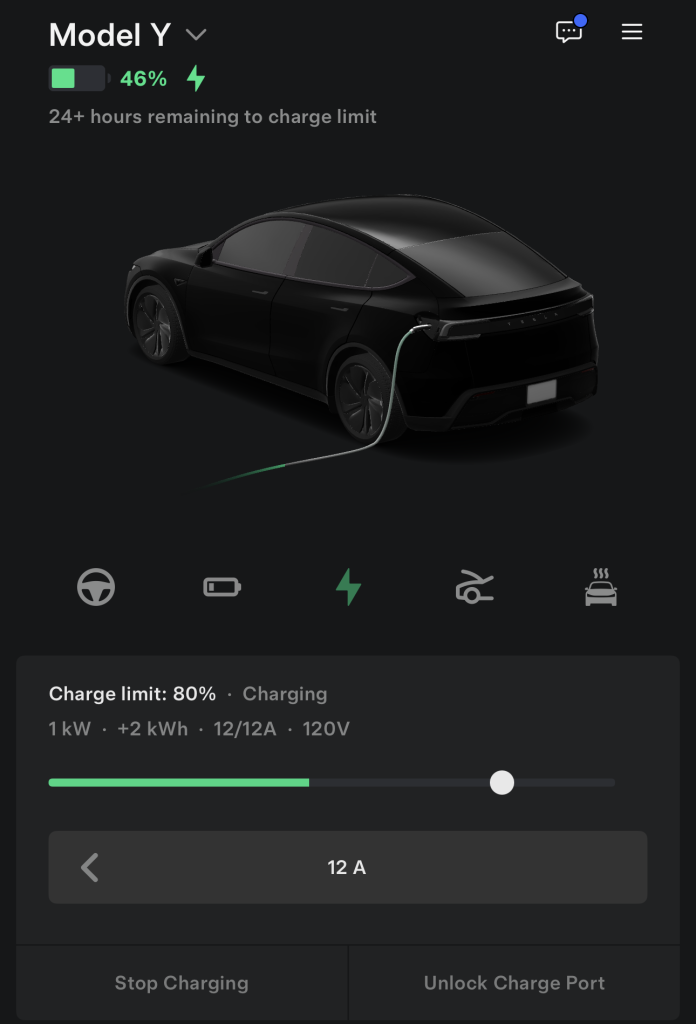
I plan to cover some additional details on this as time goes on, including any troubleshooting I might have to do, how much my electric bill goes up, and whether or not I run into any issues with my neighbors or my leasing office.
If you’re looking for some help on an at-home charging solution or have any questions about my setup, please email me at joey@teslarati.com.
🚨 I FINALLY figured out a way to charge my Tesla at home as a renter — Using Superchargers exclusively was inconvenient, tough on the battery, and expensive
Here’s how I did it: https://t.co/TZokpc6Fh3 pic.twitter.com/UtRYKLvB2Y
— TESLARATI (@Teslarati) March 2, 2026
Elon Musk
Starlink V2 to bring satellite-to-phone service to Deutsche Telekom in Europe
Starlink stated that the system is designed to deliver 5G speeds directly to compatible smartphones in remote areas.
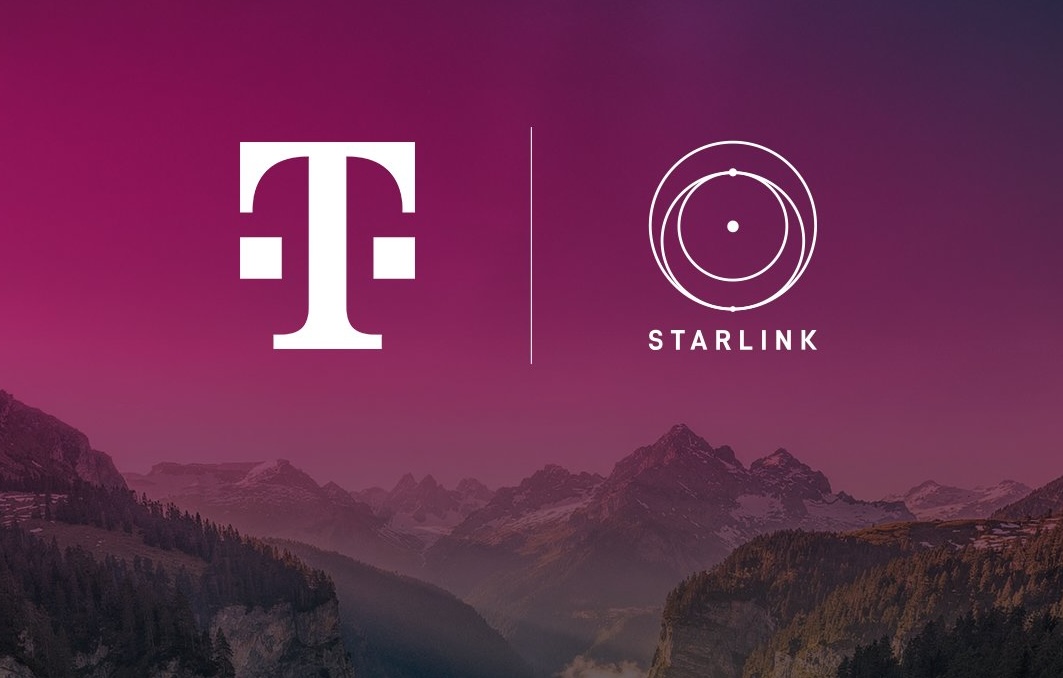
Starlink is partnering with Deutsche Telekom to roll out satellite-to-mobile connectivity across Europe, extending coverage to more than 140 million subscribers across 10 countries.
The service, planned for launch in 2028 in several Telekom markets, including Germany, will use Starlink’s next-generation V2 satellites and Mobile Satellite Service (MSS) spectrum to enable direct-to-device connectivity.
In a post on X, the official Starlink account stated that the agreement will be the first in Europe to deploy its V2 next-generation satellite-to-mobile technology using new MSS spectrum. The company added that the system is designed to deliver 5G speeds directly to compatible smartphones in remote areas.
Abdu Mudesir, Board Member for Product and Technology at Deutsche Telekom, shared his excitement for the partnership in a press release. “We provide our customers with the best mobile network. And we continue to invest heavily in expanding our infrastructure. At the same time, there are regions where expansion is especially complex due to topographical conditions or official constraints,” he said.
“We want to ensure reliable connectivity for our customers in those areas as well. That is why we are strategically complementing our network with satellite-to-mobile connectivity. For us, it is clear: connectivity creates security and trust. And we deliver. Everywhere.”
Under the partnership, compatible smartphones will automatically switch to Starlink’s satellite network when terrestrial coverage is unavailable, enabling access to data, voice, video, and messaging services.
Telekom reports 5G geographic coverage approaching 90% in Germany, with LTE exceeding 92% and voice coverage reaching up to 99%. Starlink’s satellite layer is intended to extend connectivity beyond those terrestrial limits, particularly in topographically challenging or infrastructure-constrained areas.
Stephanie Bednarek, VP of Starlink Sales, also shared her thoughts on the partnership. “We’re so pleased to bring reliable satellite-to-mobile connectivity to millions of people across 10 countries in partnership with Deutsche Telekom. This agreement will be the first-of-its-kind in Europe to launch Starlink’s V2 next-generation technology that will expand on data, voice and messaging by providing broadband directly to mobile phones,” she said.
Starlink’s V2 constellation is designed to expand bandwidth and capacity compared to its predecessor. If implemented as outlined, the 2028 launch would mark one of the first large-scale European deployments of integrated satellite-to-phone connectivity by a major telecom operator.
News
Tesla back on top as Norway’s EV market surges to 98% share in February
Tesla became Norway’s top-selling brand with 1,210 registrations, representing a 16.6% share.
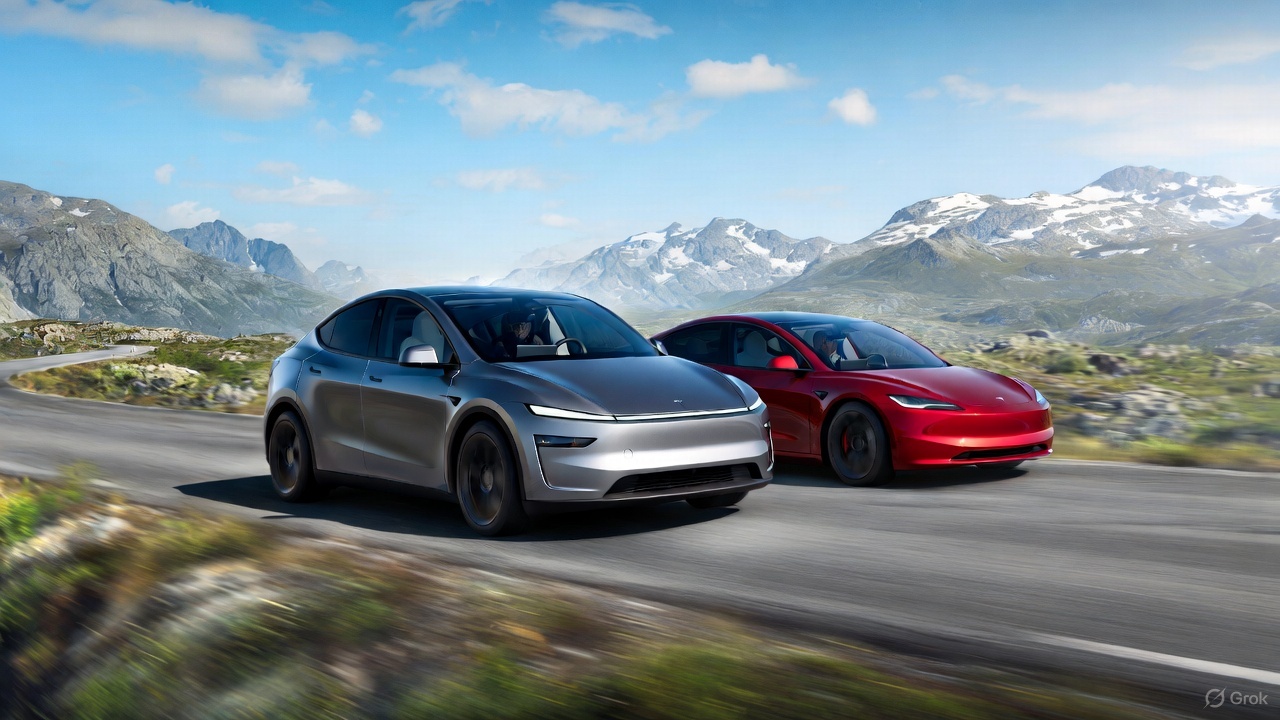
Tesla reclaimed the top spot in Norway’s auto market in February as electric vehicles captured more than 98% of all new car registrations.
The rebound follows a sharp January slump triggered by VAT rule changes, which prompted numerous car buyers to advance their purchases into late 2025.
As per data from the Norwegian Road Traffic Information Council (OFV), 7,127 new electric vehicles were registered in February, representing a 98.01% market share. Fossil-fuel vehicles and hybrids accounted for just 2% of total new registrations.
Total new car registrations reached 7,272 units in February, hinting at a rapid recovery after January sales fell nearly 75% year-over-year following VAT adjustments.
OFV Director Geir Inge Stokke noted that similar patterns were observed after previous VAT changes in 2022, with demand temporarily weakening before normalizing, as noted in an Allt Om Elbil report.
“We are now seeing signs that the market is returning to a more normal level of activity, which we also experienced after the VAT change in 2022. At that time, changes in demand led to a weak start to 2023. We have seen the same pattern this year,” he said.
Amidst this trend, the Tesla Model Y made a strong comeback in the domestic market. After an unusually weak January that saw the Tesla Model Y drop to seventh place, the model returned to the top of Norway’s sales chart in February.
The Model Y recorded 1,073 registrations, giving it a 14.8% market share for the month. Tesla also became Norway’s top-selling brand with 1,210 registrations, representing a 16.6% share. Toyota followed with 941 registrations, while Volkswagen, Volvo, and Skoda rounded out the top five brands.
The February data suggests that Tesla’s January dip was tied more to timing effects around VAT adjustments than to structural demand shifts. It would then be interesting to see how the rest of the year unfolds for Tesla, particularly as the company pushes for the release of its Full Self-Driving (Supervised) system to Europe this year.
